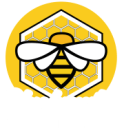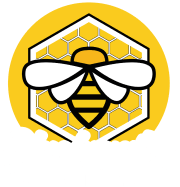How to make life sweet for bees in your garden
- 15 February 2021
- | admin
This weekend, we featured in our very first newspaper article which was written by the well known Irish Gardener and TV presenter – Mr. Peter Dowdall (For more on Peter and what he does please visit https://theirishgardener.com/pages/about-the-irish-gardener )
Full article is below.
“How to make life sweet for bees in your garden”
It’s that fabulous time of the year when we begin to see growth emerge from the energy beneath the surface once more. The seemingly delicate and tender snowdrops and crocuses have battled through frozen ground to open-up in glorious, colourful bloom.
Soon, that annual switch will go off in each one of us which sends us longing for the outdoors once more, a longing which is exacerbated this year for obvious reasons of lockdown.
Once allowed to, we will head for the garden centres and, perhaps not this year, but in other years, the flower shows too, in search of horticultural treasures with which to fill our gardens.
It has never been more critically important, however, to remember that our garden does not exist in isolation. Each bit is part of that much bigger tapestry.

PHOTO: Blackwater Honey is a member of the Federation of Irish Beekeepers Association (FIBKA), the Irish Beekeeping Association (CLG) along with being a firm supporter and member of the Native Irish Honey Bee Society (NIHBS). Picture: Blackwater Honey
Our space is not somewhere that should be filled with intensively hybridised cultivars and kept “clean” and insect-free by the use of damaging chemicals, for this has a decimating effect on that self-same, greater tapestry. Perhaps it is because of this thinking and abuse of chemicals that we are in this lockdown situation in the first place.
When we do journey to the centres to get our plants, we must make sure that what we introduce into our gardens helps to sustain, that most important of jigsaw pieces, the bees.
One-third of our 99 bee species are at risk of extinction. By choosing pollen-rich flowers for your garden, you will help provide much-needed food for our bumblebees and other pollinating insects as well as creating a beautiful colourful garden.
There are lots of pollinator-friendly plants to choose from. To learn more about the All-Ireland Pollinator Plan, see www.pollinators.ie
Here are a few plants that will not only bring colour and much beauty to your garden but are adored by bees and other pollinating insects.
In general, plants which produce brightly coloured single blooms are good. The bright colours will attract them and single flowers are much easier to extract nectar from than intricate double blooms.
Of the spring-flowering bulbs which are beginning to open up at the moment muscari, crocuses and alliums are among the best for bees. One, simple way to find out if a flower is good for bees or not, is to simply stop and observe. If bees are about, you will see them busily feeding around the muscari, whilst the daffodils won’t attract any as they are of little or no value to pollinators.
As spring turns to summer, the garden becomes awash with colour and the bees will feast on, among other plants, lavender, catmint, echinops, aedum and Verbena bonariensis. All of these will provide a mixture of heights, colours and scent to your garden.

Photo: Blackwater Honey has set up an initiative called “Adopt a Hive”.
Rudbeckia ‘Goldsturm’ with its showy, simple yellow flowers and black centre is a great one for later in the summer
Irish heather is great as there are so many different species and varieties, it’s possible to have one in bloom during each month of the year. As the winter sets in, food becomes more scarce for the bees and winter-flowering heathers, hellebores and viburnums are important. The common ivy and willow, two of our native plants, more suited to rural gardens are amongst the most important at sustaining bees during these lean months.
I have another reason for wanting to help the bees and that is because I am a bit like Winnie the Pooh when it comes to honey, I adore it and I came across a fantastic local initiative recently from Blackwater Honey called “Adopt a Hive”.
Blackwater Honey is a member of the Federation of Irish Beekeepers’ Association (FIBKA), the Irish Beekeeping Association (CLG) along with being a firm supporter and member of the Native Irish Honey Bee Society (NIHBS), whose aim is also to promote the native Irish honey bee, Apis mellifera mellifera.
Their aim is to produce artisan honey products, along with breeding bees with an increased prevalence for Varroa tolerance in order to reduce the dependency on chemical treatments.
“Adopt a Hive” and “Adopt A Queen” are initiatives developed to support their work whereby the sponsor receives, not just some jars of high-quality honey but also regular updates on your hive on social media and with photographs, four timber mini honey dippers, a honey dipper, a Blackwater Honey Gift Box and a free packet of wildflower seeds
These type of initiatives are already running in different parts of Britain and Ireland and offer the opportunity to corporates and individuals alike to properly support initiatives that will actually make a difference and…..you get some honey!
For more information go to www.blackwaterhoney.ie



